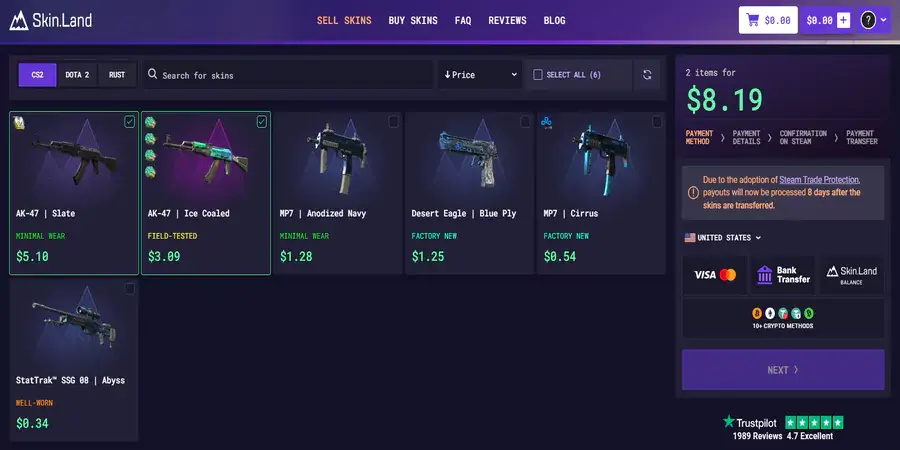Consumers crave instant gratification, from same-day deliveries to on-demand streaming. The expectation for immediate results has reshaped industries worldwide. The online casino sector is no exception. Businesses in this space are adapting to meet the demands of players who seek seamless experiences, rapid transactions, and instant access to entertainment. How are online casinos evolving to thrive in an era where speed and convenience reign supreme, with a focus on the business strategies driving this transformation?
The Demand for Speed in Online Gambling
The need for instant gratification has heavily influenced casinos, forcing casino operators to adapt their methods of operation. The modern gaming demographic will not wait for slow website load times, cumbersome site registrations, or long payment/processing times. This evolving business landscape presents challenges and opportunities for casinos to remain competitive.
Casinos spend a lot of money on technology to improve the user experience, to address fast websites, mobile experiences, and easy-to-use interfaces to accommodate a new player base that demands these capabilities. Some operators have added Single sign-on (SSO) systems to ease player friction when they interact with their offerings. These advancements help provide customer satisfaction, deliver a better user experience, and also lessen customer loss rates, which are KPI’s for subscription and transaction-based businesses.
Real-time analytics provides responsive systems to support operational efficiencies, which can facilitate casinos to succeed through instant experiences, by interpreting player behaviours to offer on-screen promotions and game recommendations that increase loyalty and customer lifetime value. Many of today’s online casinos have embraced data-driven models that establish optimal synergies between immediate satisfaction and the operations of online gaming.
Cryptocurrency: The Ultimate Enabler of Instant Transactions
Cryptocurrency has emerged as one of the most substantial business advancements within the online casino space, representing the significant growth in the crypto-friendly online casino sector. Digital currencies like BTC and ETH allow for quick deposits and swift withdrawals without the delays typically incurred in the conventional banking system. This speed is essential for online casino players, who want quick access to their winnings.
From an operational perspective, the use of cryptocurrency lowers transaction costs and the need for intermediaries, benefiting profit margins. It enables access to new markets, particularly those jurisdictions that put banking restrictions on gambling. Operators, however, must take into account the complex terminology and regulations in this area, while the decision between profit and regulatory oversight can add additional challenges, all while considering the adoption of a secure blockchain. The emergence of the strategy of some of the top Bitcoin casinos illustrates how businesses are leveraging cryptocurrency to focus on players who already understand technology, particularly essential elements such as e-Wallets or speedy payment mechanisms, getting that edge over their competitors who resist this transition.
While aware of these successes, crypto adopters must still acknowledge the risks they take on. For example, the uncertainty and volatility of these digital currency markets can greatly undermine revenue as a player can securely deposit money, but also limit the businesses ‘ revenue and profits. There are also several educational obligations with players being informed of wallet features and security on how they want to protect their assets. Although the crypto trend varies, what is becoming increasingly evident is that companies that prioritize speed and time-based activities are in a better position to collect and retain market share.
Live Dealer Games and Real-Time Engagement
Online casinos provide immediate gratification through live dealer games. Live dealer games provide the convenience of online play while giving players the real aspect of an actual casino with streamed play in real-time. For players, they can immediately interact with dealers and other players, which replicates the excitement of a real casino experience.
For operators, live dealer games are high-margin. Although production costs related to live streaming are higher, there is a strong business case for this take with premium pricing options. Also, companies are embracing chatbots to enhance player engagement during live games through AI to make the experience seamless for players. Combining the uniqueness of live dealer games with technology is reflective of a greater trend in the industry of using technology to provide instant quality entertainment.
Live dealer games also offer operators a wealth of information on player preferences, allowing operators to adapt their games accordingly. Analyzing metrics such as time spent per session or betting patterns enables businesses to adjust their game offerings and marketing efforts to optimize the potential of both revenue streams and growth.
Regulatory Challenges in a Fast-Moving Industry
The desire for fast results pushes innovation, but it also makes following rules a lot more complicated. Online operators have to deal with different regulations in many places, each with its own rules about payments, player privacy, and responsible gambling. Businesses need to offer fast services while still sticking to these rules.
For example, KYC (Know Your Customer) and AML (Anti-Money Laundering) requirements can decelerate and create friction with onboarding procedures. Some players expect instant access to play on their favourite casino games with no delay. Some progressive operators have taken the opportunity to use AI-powered identity verification processes that will perform checks in seconds without compromising security.
Digital identity verification tools enhance user experience and cut costs. Using technology can allow regulators, businesses, and government to align their goals to focus on responding to customer behaviours and add on additional compliance obligations with technology.
Furthermore, businesses are reacting with real-time monitoring systems that flag risky-player behavior and provide instant access to self-exclusion tools if the player wishes. Supporting the consumer is a powerful initiative that can also mitigate operator risk of not being subject to penalties from industry regulators.
The Role of Marketing in Driving Instant Engagement
Today’s world of instant gratification relies on marketing techniques to capture consumer attention immediately. Online casinos utilize real-time targeted marketing techniques to attract new players while keeping their current players. The AI programmatic advertising system allows businesses to present customized ads that suit certain user actions, geolocations, and specific user preferences.
Social media is included in this as well. The pairing of short-form video content with engaging stories can elicit immediate access to audiences, sending them to the casino platforms. The affiliate marketing strategy is also effective because businesses partner with influencers and review sites to capture specific audience niches. These quick fixes tend to focus on immediate outcomes, allowing players to move directly from discovery to fully managed gameplay in an instant.
The marketing strategy for this industry must be approached carefully. Utilizing aggressive marketing strategies that pressure players too heavily is likely to cause them to look elsewhere or face legal issues down the line. Market operators that do well in this space are firms that take a longer-term approach to control socialized messaging and something-for-nothing campaigns to create trust with players while offering them opportunities to engage instantly at their convenience.












